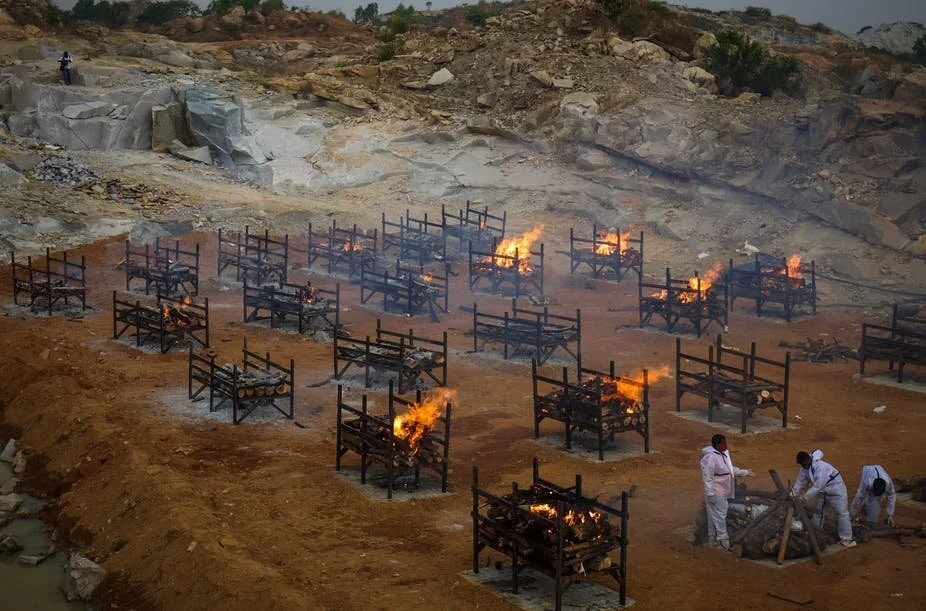At a Delhi temple, Afghan Sikhs gather in prayer, their voices rising in unison, yet their hearts weighed down with longing for a homeland they were forced to leave. Among them is Daya Singh. He fled Afghanistan twice — first in 1992 when the Taliban seized control, and again in 2006 after facing persecution for being Sikh.
Read MoreRanjit Singh, known as the “Lion of Punjab,” was responsible for the creation of the Sikh Empire in 19th century north India. A skilled warrior and revered king, as well as the first maharajah of the Sikh people, Singh is one of the most important figures in Sikh history. Now, his life and reign as a ruler are the subject of the exhibition “Ranjit Singh: Sikh, Warrior, King” at London’s The Wallace Collection.
Read MoreThe first Weekend Plug-in of 2024 looks ahead to the year’s expected big news. Plus, as always, catch up on all the best reads and top headlines in the world of faith.
Read MoreDhanak of Humanity was founded in 2004 by Asif Iqbal, who started it as a support group for interfaith couples in India, aimed at providing guidance and assistance to those facing challenges due to societal prejudices surrounding interreligious unions.
Read MoreThe issue is one that not only impacts Sikhs but Jews, Muslims and some members of neo-Nordic faiths that prescribe facial hair for men. The U.S. Army in 2017 and the Air Force in 2020 enacted new uniform policies respectively to allow beards, hijabs, turbans and other articles of faith to be worn while in military uniform. The U.S. Navy and Marines still only provide limited religious accommodations for sailors or marines who would like to practice their faith.
Read MoreAmritpal Singh was born in Jullupur Khera in the Amritsar district of Punjab. He reportedly enrolled himself in a polytechnic college before moving to Dubai to join a transport business in 2012. In 2022 he returned to India to take over the leadership of “Waris Punjab De” after founder Deep Sidhu died on Feb. 15, 2022 in a vehicle accident.
Read MoreIn Sikhism, a religion which originated in India about 500 years ago, unhealthy attachment is considered one of the five biggest sins. Therefore, alcoholism and drug addiction are discouraged. Despite this, the northern Indian state of Punjab, home to 16 million Sikhs, has struggled with substance abuse for decades.
Read More(ANALYSIS) The deadly second wave of COVID-19 currently sweeping India is causing a cultural change in the way the country handles the treatment of the dead.
Read More(ANALYSIS) Four members of Indianapolis’ Sikh community were killed at the FedEx facility shooting. The community mourns, and some are calling for an investigation of bias as the shooter’s motive.
Read MoreOn Jan. 26, thousands of Indian farmers turned their months-long sit-in protest on the outskirts of the capital into a massive rally, driving their tractors over police barriers to enter the city and even climb up the walls of the historic Red Fort—all on one of India’s biggest national holidays, Republic Day. The farmers’ protest—led in Delhi by Sikhs— is proving one of Prime Minister Narendra Modi’s biggest political headaches.
Read MoreJatindra Shunty and his family have helped cremate or bury the unclaimed poor in New Delhi for years. Now during a pandemic, they are also performing last rites for COVID-19 patients, whether Hindu, Muslim, Sikh or Christian, aiming to give dignity in rest to people who may not have been treated with dignity in life.
Read MoreAfter India’s unilateral decision to rid the Muslim-majority region Kashmir’s special autonomy from the constitution, some are angry and fear a rise in Hindu settlement, while others cheer the move as a way to help Hindu and Sikh refugees from Pakistan and Kashmir.
Read MoreThe region has long been plagued by atrocities against Kashmiri Muslims, some of whom advocate for separating from India, and ethnic Kashmiri Hindus, who support India’s military occupation and takeover. Caught in the conflict is a tiny minority of Sikhs, who say their voices are not being heard.
Read More











